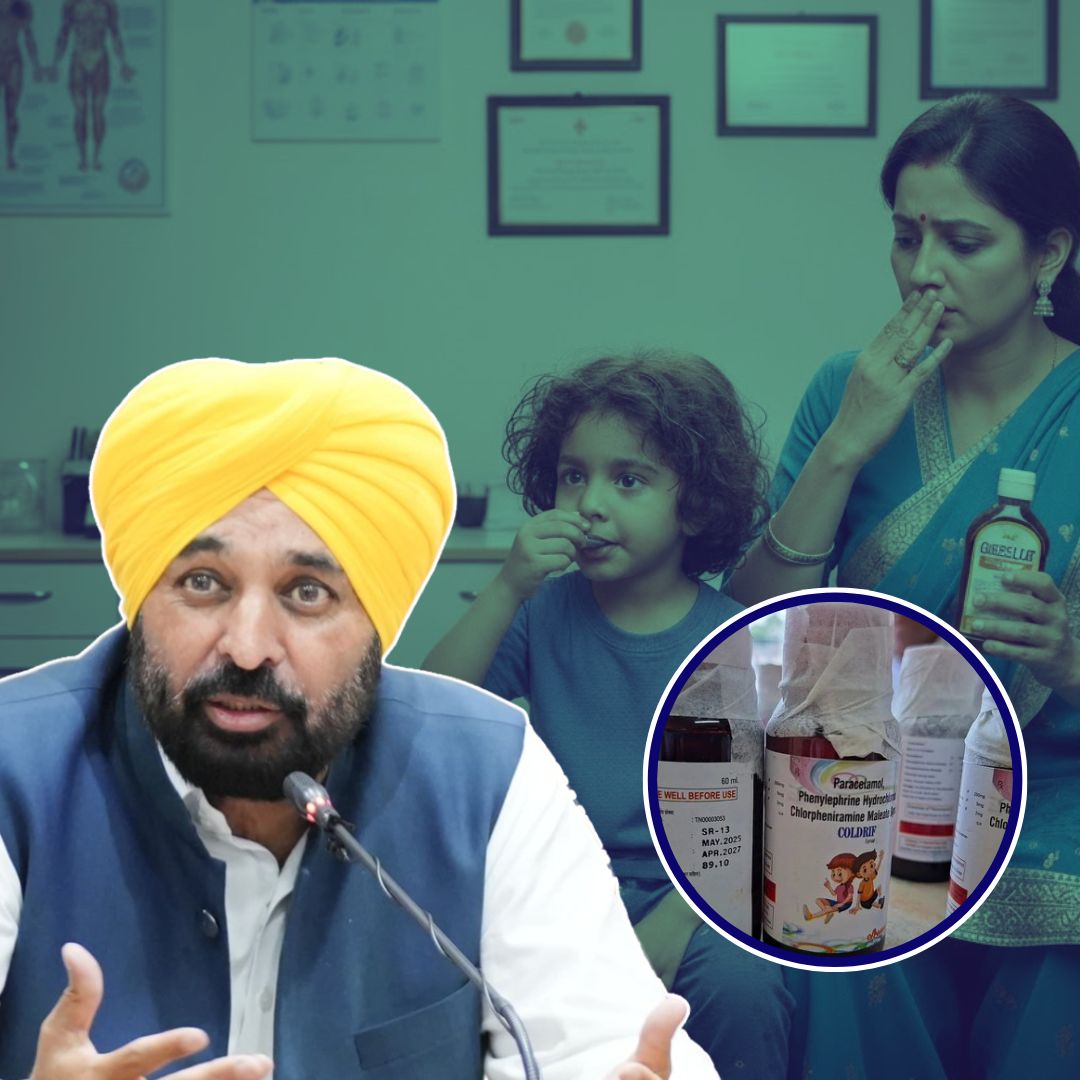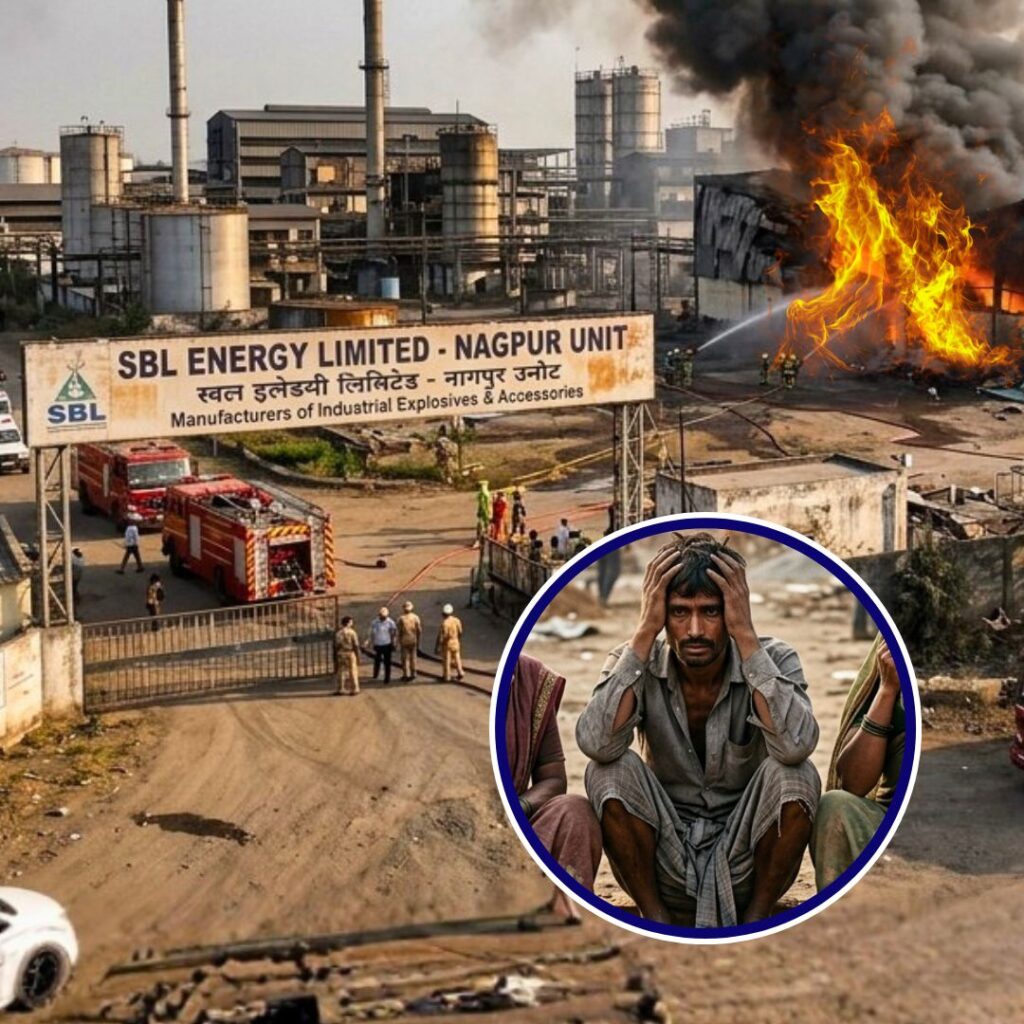The Punjab government has issued an immediate ban on the sale, distribution, and use of the Coldrif cough syrup, batch SR-13, after it was declared “Not of Standard Quality” by the Madhya Pradesh Drugs Testing Laboratory.
This decisive action comes in response to multiple child fatalities linked to the syrup, which was found to contain 46.28% diethylene glycol (DEG), a highly toxic chemical. Since August, 16 children under the age of 12 have died in Madhya Pradesh’s Chhindwara district and Rajasthan after consuming the contaminated syrup.
The ban has now been extended across several states, including Goa, Haryana, Himachal Pradesh, Karnataka, Maharashtra, Rajasthan, Uttar Pradesh, and Uttarakhand, with authorities taking stringent measures to prevent further tragedy.
Immediate Health Risk and Official Response
The detection of diethylene glycol, a chemical commonly used in industrial products such as brake fluids and printing inks, in a medicinal syrup intended for children is a grave public health concern. The Drugs Testing Laboratory in Madhya Pradesh analyzed the syrup and revealed 46.28% of this toxic solvent in the batch.
Consumption of DEG can lead to severe kidney damage, nervous system disorders, and often results in death, particularly in children whose bodies are more vulnerable to such poisons. Punjab’s Food and Drugs Administration promptly declared the syrup unsafe and prohibited its sale and use. Retailers, hospitals, and distributors have been ordered to immediately remove any stocks of the banned batch and report their inventories to authorities for swift action.
Tragic Consequences Across States
The epidemic of child deaths began to surface in August when 16 children in Madhya Pradesh and Rajasthan succumbed following the consumption of the contaminated Coldrif cough syrup. Most victims were under 12 years old and exhibited sudden symptoms of renal failure after being treated for common cold and fever using the syrup. The unfolding tragedy has devastated families and communities, drawing national attention to the issue of medicine safety.
Madhya Pradesh authorities have taken legal action, filing FIRs against the pharmaceutical manufacturer Sresan Pharmaceuticals based in Tamil Nadu and detaining some medical practitioners connected to the prescriptions. The central government and affected states have initiated compensation schemes and medical support programs for the victims’ families to mitigate the profound loss.
Background: Root Causes and Broader Context
Similar incidents in India’s pharmaceutical history have exposed gaps in drug quality control and regulatory enforcement. Reports on working conditions and hygiene practices at the manufacturing unit for Coldrif have revealed alarming lapses. Independent investigations highlighted rust, filth, and neglect in the factory premises, which likely contributed to contamination.
Pharmaceutical industry experts emphasize that production, quality assurance, and distribution oversight must be significantly strengthened to prevent such crises. Additionally, misuse and irrational prescription of cough syrups for children, often without adequate clinical evaluation, aggravate the risks. The current crisis underscores the critical need for systematic reforms in drug manufacturing standards and prescription practices nationwide.
The Logical Indian’s Perspective
This heartbreaking loss of young lives is a stern reminder that pharmaceutical regulatory vigilance cannot be compromised. The Logical Indian stands for proactive measures to ensure medicine safety and corporate accountability, to protect the most vulnerable, our children.
Transparency in investigations, stronger enforcement of production standards, and enhanced public awareness are pivotal to rebuilding trust. Empathy and kindness must guide the collective response by governments, healthcare providers, and communities alike. By sharing information responsibly and reporting suspected medicine quality issues, society can act as a first line of defence.













